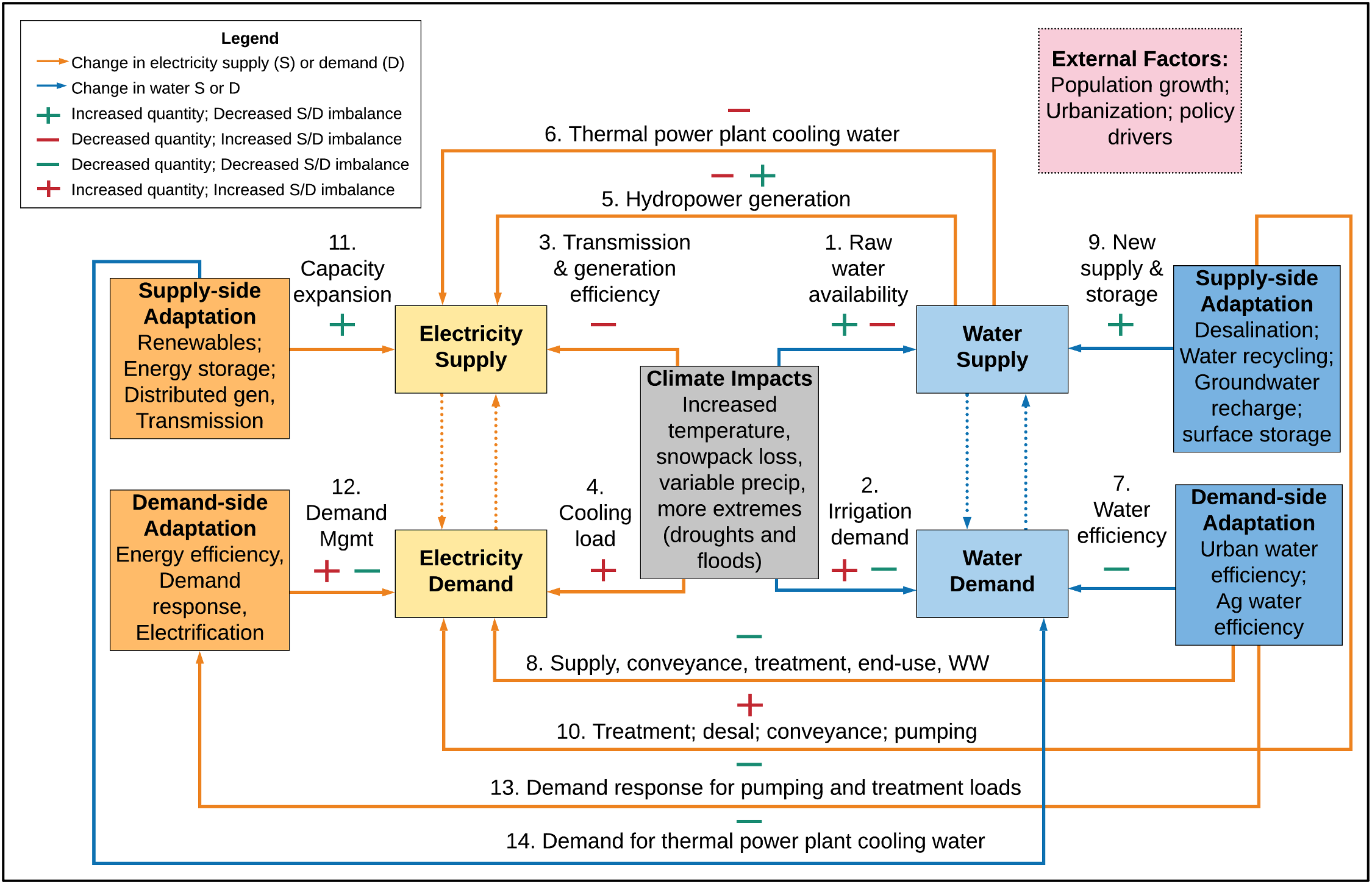
California’s energy and water sectors are intricately linked. California’s water sector consumes about a fifth of its electricity generation while hydropower supplies about 15% of electricity. Decreasing snowpack and variability in precipitation due to climate change is affecting the state’s hydropower potential. Water shortages are likely to increase groundwater pumping and adaptation of desailnation plants, increasing the demand for electricity. In collaboration with researchers at Berkeley Lab and the University of California at Berkeley, we are studying the energy-water-climate nexus in California and have developed a framework to understand the various linkages between climate, energy, and water. Although there are significant uncertainties in future water supplies under various climate scenarios, we found that if the state adapts to the worst-case scenario by choosing energy-intensive technologies such as desalination, the energy imbalance could be as large as that caused by direct climate change impact (lower hydropower generation) and adaptation (increased air conditioning) in the energy sector.
Project dates: 2019-2020
Research Area: Energy-Water-Climate nexus
